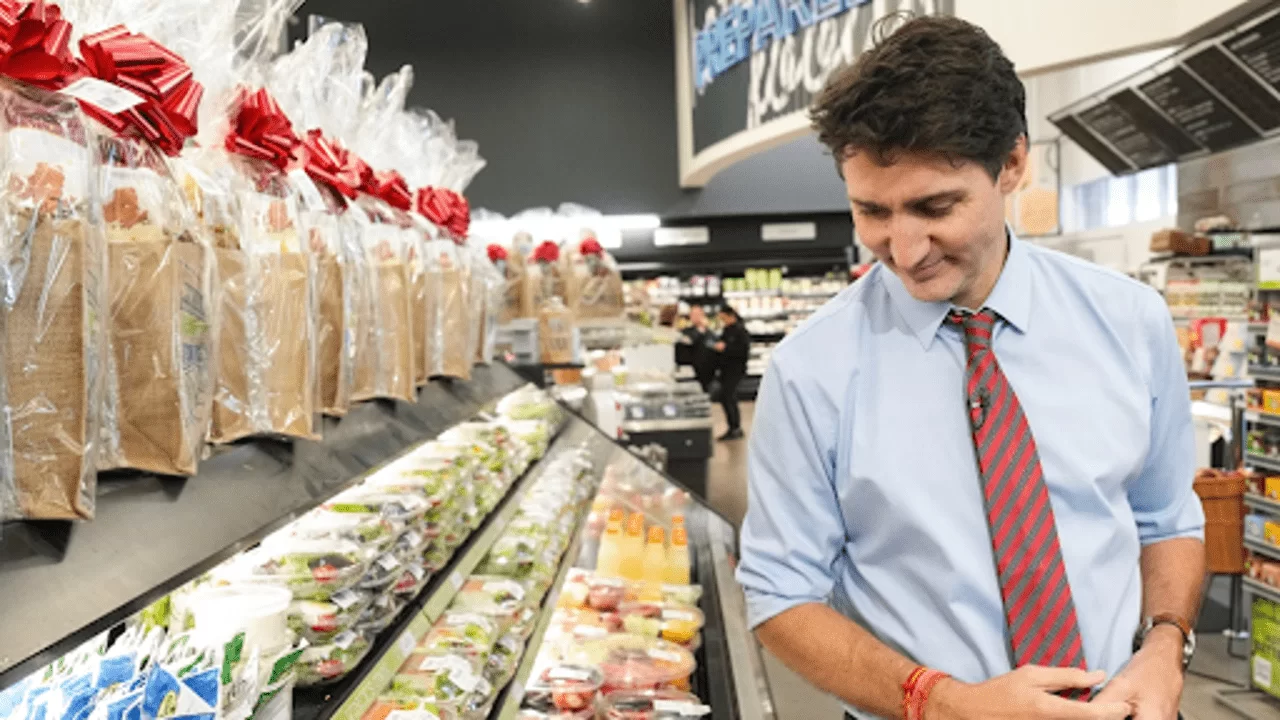
On Thursday, November 21, 2024, Prime Minister Justin Trudeau made a visit to Vince's Market, a local grocery store in Sharon, Ontario. The visit highlighted his ongoing engagement with communities across the country. The Canadian Press covered this event. The Canadian Press
Prime Minister Justin Trudeau announced on Thursday that Canadians will receive a temporary tax break on a variety of essential items, including children’s clothing and diapers, prepared meals, and common holiday treats. The move is part of an effort to address the ongoing affordability concerns many Canadians face. In addition, Trudeau unveiled a one-time $250 rebate for individuals who qualify.
The two-month Goods and Services Tax (GST) and Harmonized Sales Tax (HST) break will take effect from December 14 to February 15, applying nationwide. The federal government hopes this will ease the financial strain felt by households across the country, especially as families prepare for the holiday season.
During his announcement, Trudeau highlighted that the tax break would cover a wide range of goods. These include prepared meals like salads, sandwiches, and deli platters, as well as dine-in, takeout, and delivery restaurant meals. Popular snack foods, including candies, chocolates, chips, and ice cream, will also be exempt from the GST/HST. Other items benefiting from the relief include children’s toys, clothing, footwear, and car seats, as well as video games, jigsaw puzzles, and even Christmas trees, both real and artificial.
"Canadians have been through a lot. They work hard. We see that. We've been able to get through the past couple of years. Everyone had to tighten their belts a little bit. Now we're going to be able to give a tax break for all Canadians," Trudeau remarked.
Deputy Prime Minister and Finance Minister Chrystia Freeland explained that certain prepared foods, like rotisserie chickens, are currently taxed under the GST/HST. With the new measure, such everyday convenience foods will be tax-free, making it easier for busy families to access affordable meal options.
In addition to the tax break, the federal government will roll out a new "Working Canadians Rebate." This rebate will provide a $250 payment to eligible Canadians who earn $150,000 or less per year. It will be sent to approximately 18.7 million people in the spring of 2025. To qualify for this rebate, individuals must file their 2023 tax returns by December 31.
Although Trudeau has historically resisted rebate policies due to concerns about inflation, he argued that current economic conditions made this relief possible. "Inflation is down," he said. "We can make sure that we are putting money in people's pockets in a way that is not going to stimulate inflation, but is going to help them make ends meet."
The cost of this tax relief program is expected to be around $1.6 billion. For a family spending $2,000 on eligible goods, the savings over the two-month period will amount to about $100. Families in provinces with the HST will see even greater savings.
Meanwhile, the New Democratic Party (NDP) voiced their support for the relief measures but criticized the exclusion of monthly bills from the tax break. NDP Leader Jagmeet Singh said that while his party had pushed for broader relief, they would still vote in favor of the current proposal to help Canadians get financial relief.
The tax break will need to pass through legislation in the House of Commons, requiring support from at least one opposition party. The NDP is prepared to help move the bill forward quickly, despite ongoing political tensions. However, the Conservative Party dismissed the proposal, calling it a "temporary tax trick" that would not offset the government's rising carbon tax.
Pollster David Coletto pointed out that the relief measures could boost the Liberal Party’s standing with voters, especially if Canadians feel the government is responding to their needs. However, he warned that the temporary nature of the relief could leave the government vulnerable if they do not continue to address affordability concerns in the future.















